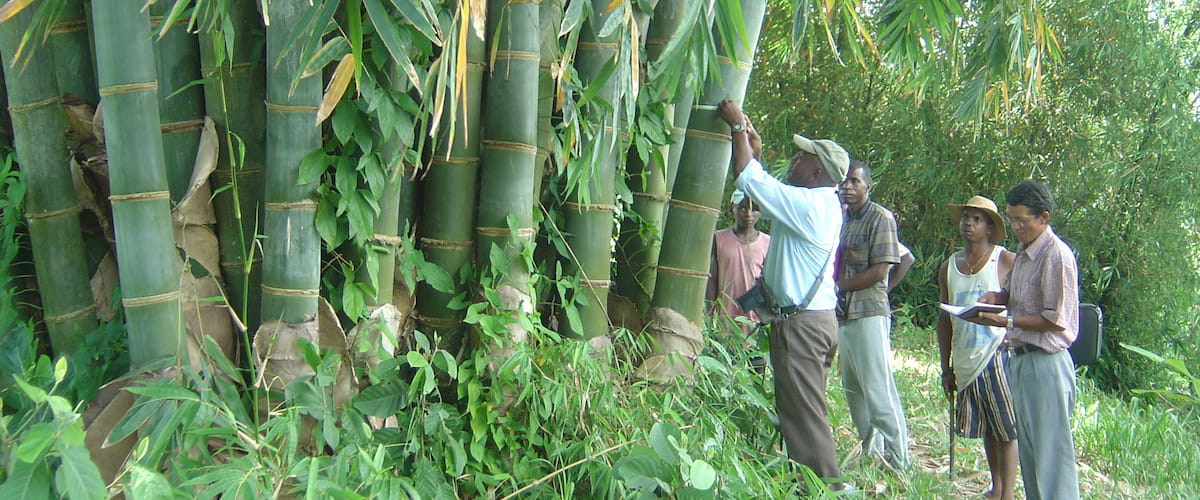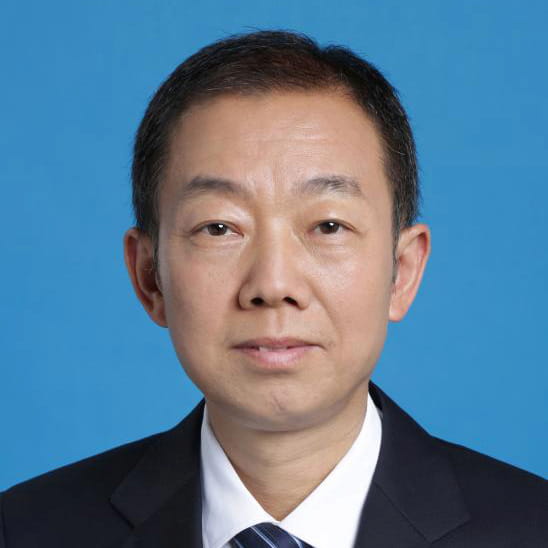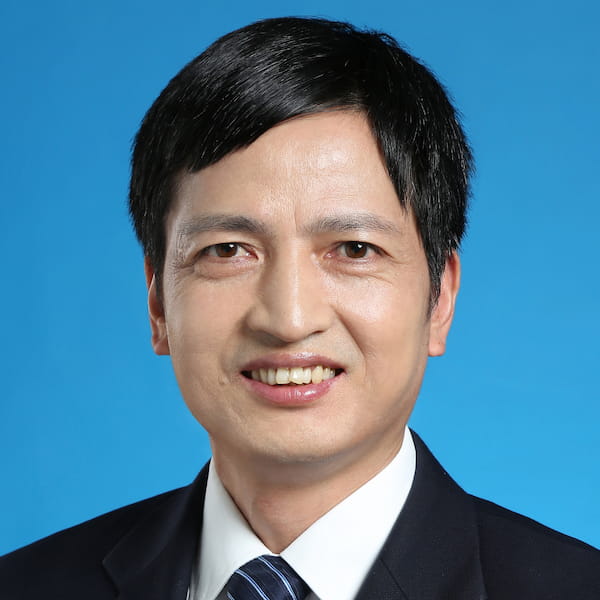
International Young Scientist Forum for Climate Change
Bamboo-based Solutions
When?
Where?
The deadline for abstract submission is November 1, 2023.
Forum Summary
The International Young Scientist Forum for Climate Change is a two-day online event organized by the Faculty of Forestry at the University of British Columbia (UBC), Zhejiang A&F University (ZAFU), and International Bamboo and Rattan Organization (INBAR), co-organized by International Center for Bamboo and Rattan (ICBR), China-Canada Joint Laboratory for Bamboo & Rattan Science and Technology, Asia Pacific Forestry Education Coordination Mechanism (APFECM), Jiangxi Academy of Forestry, Nanjing Forestry University, Fujian A&F University, Southwest Forestry University, Bamboo Society of India (BSI), and World Bamboo Organization (WBO). Taking advantage of online platforms, the forum facilitates international participation and communication. The event explores innovative bamboo-based solutions to combat climate change, covering a range of topics:
Theme I: Bamboo and Socio-Economic Growth
Subtopics: Bamboo livelihood, rural development strategies, and the economic potential of bamboo-based industries.
Theme II: Innovations in Bamboo as a Sustainable Resource
Subtopics: Bamboo as a future material, advancements in bamboo-based products, and its role in a sustainable future.
Theme III: Combatting Climate Change with Bamboo
Subtopics: Bamboo’s role in climate change mitigation and adaptation, carbon sequestration potential of bamboo, and bamboo’s contribution to green infrastructure.
Theme IV: Bamboo Ecosystems – Conservation and Restoration
Subtopics: Landscape restoration with bamboo, sustainable bamboo forest management, and bamboo forest biodiversity conservation.
This forum welcomes global young scientists, including graduate students, postdoctoral fellows, and young professors conducting relevant research. Participants will engage in discussions, share knowledge, and foster collaborations to promote a sustainable future using bamboo as a key resource in combating climate change. There are also opportunities for submitting posters to the forum. All presentations, posters, and discussions will be compiled in the conference proceedings. Furthermore, all participants are encouraged to submit their work in the journal of Advances in Bamboo Science.
Organizers
- Faculty of Forestry, University of British Columbia
- Zhejiang A&F University
- International Bamboo and Rattan Organization (INBAR)
Co-organizers
- International Center for Bamboo and Rattan (ICBR)
- China-Canada Joint Laboratory for Bamboo & Rattan Science and Technology
- Asia Pacific Forestry Education Coordination Mechanism (APFECM)
- Jiangxi Academy of Forestry
- Nanjing Forestry University
- Fujian A&F University
- Southwest Forestry University
- Bamboo Society of India (BSI)
- World Bamboo Organization (WBO)
Supporting Organization
- Journal: Advances in Bamboo Science
How to Join the Forum
The forum will take place online via Zoom. Please refer to the details below to join your corresponding session(s). If this is your first time using Zoom, please refer to the Joining a Zoom meeting article for instructions on how to join from your system.
Main Room
Meeting ID: 991 962 0731
Passcode: 632520
Room 1
Meeting ID: 991 962 0731
Passcode: 632520
Room 2
Meeting ID: 635 1299 6567
Passcode: 13742
About the Forum
The International Young Scientist Forum for Climate Change is committed to investigating bamboo-based solutions to address the urgent issue of global climate change, emphasizing the crucial role of young scientists. The ongoing climate crisis poses significant and irreversible impacts on natural ecosystems, human societies, and economies, demanding urgent, immediate, and ambitious efforts to drastically reduce greenhouse gas emissions and initiate a transition toward a sustainable and resilient future. Bamboo, a fast-growing woody grass, has shown immense potential as a nature-based solution to climate change. It outperforms many tree species in similar regions in terms of carbon sequestration and storage capacity. Bamboo forests, now covering over 35 million hectares globally, serve as an exceptional renewable resource, yielding a variety of durable and sustainable products, from flooring to furniture, that can substitute carbon-intensive materials, thereby reducing deforestation and pollution. In 2022, the International Bamboo and Rattan Organization (INBAR) launched the ‘Bamboo as a Substitute for Plastic Initiative.’ This initiative aims to amplify the use of bamboo to mitigate plastic pollution and address climate change challenges. With the global bamboo industry estimated to reach USD 90 billion by 2030, the development of bamboo-based products holds significant economic potential. In addition, introducing improved forest management activities in bamboo forests can generate carbon offset credits, providing financial incentives for farmers to better manage their bamboo forests and thus contributing to climate change mitigation and rural poverty reduction.
The forum seeks to gather young scientists from around the world, including graduate students, postdoctoral fellows, and young professors, to delve into the potential of bamboo as a climate change solution. The forum will explore a range of topics, including bamboo livelihood and rural development strategies, climate change mitigation strategies, sustainable management practices, and biodiversity conservation. By facilitating collaboration and knowledge exchange, the forum aims to inspire and empower young scientists to contribute to a more sustainable future. The forum will encourage good-quality article submissions to the journal of Advances in Bamboo Science.
Opening Remarks

Rob Kozak
Dean, Faculty of Forestry University of British Columbia

Jiasheng Wu
Vice-President, Zhejiang A&F University

Wenming Lu
Deputy Director General, International Bamboo and Rattan Organization
Keynote Speakers

John Innes
Professor, Faculty of Forestry, University of British Columbia

Pablo van der Lugt
Biobased Building Specialist, Faculty of Architecture, Delft University of Technology; Head of Sustainability, MOSO Bamboo Products
Moderators

Guangyu Wang
Associate Dean, Faculty of Forestry, University of British Columbia

Renyi Gui
Professor, School of Forestry and Biotechnology, Zhejiang A&F University

Jayaraman Durai
Director of Global Programme, International Bamboo and Rattan Organization

Chunyu Pan
Research Coordinator, Forest Carbon Research Lab, Faculty of Forestry, University of British Columbia
Participant Poster Submissions
Please use the links below to view the selected posters submitted by forum participants.
- Robotic Bamboo Propagation for Accelerated Co2 Sequestration and Biomass Generation – Bryant Beeler
- Plasticity in the Morphology of Growing Bamboo: Exogenous Treatment Effects on Plant Height, Internode Length, and Internode Numbers – Chongyang Wu
- ASSESSING SOIL FERTILITY IN COTTON CROPPING SYSTEMS UNDER CHANGING CLIMATE CONDITIONS IN CÔTE D’IVOIRE – Ismail Kone
- Cellulose nanofibril/PVA/bamboo activated charcoal aerogel sheet with excellent capture for PM2.5 and thermal stability – Keyu Zhao
- Estimation of bamboo forest carbon reserves and analysis of temporal and spatial variation characteristics in China – Li Long
- Solutions for converting bamboo waste to solid biofuels based on transportable carbonization equipment – Liangmeng Ni
- Does elevated CO2 impact future bamboo distribution under climate change? – Meinan Zhang
- Preparation of electrospun PVA@Ls@BAC@PDMS composite nanofibrous air filtration membrane with high efficiency removal for PM2.5 and excellent heat resistance – Yi Wang
- Phylogeny, trade-offs and associations of functional traits in leaves and culms of 77 woody bamboo species – Xiong Liu
- Ultralight, elastic, magnetic and superhydrophobic cellulose nanofibril based aerogel with layer-support structure designed for both excellent oil-water separation and efficient PM2.5 removal – Yu Miao
- Bamboo in the Face of Climate Change: Insights from Giant panda-feeding Bamboo Communities in Southwest China and Recommendations for Future Protection – Xiaotong Shang
- Biodegradable and High-performance Bamboo Drinking Straws: Natural Substitutes for Plastic Straws – Yu Luan
- Wood and bamboo panels for drywall – Walter Barreto
- BAMBOO BEVERAGES – Traditional vs. New Age – Samir Jamatia
- Incentive effect of “Replacing Plastic with Bamboo” policy on rural revitalization – Qi Cai
- New landscape perspective exploration of Moso bamboo forests under on/off-year phenomenon and human activities – Longwei Li
- Strong, Lightweight and Shape-memory Bamboo-derived All-cellulose Aerogel for Versatile Scaffolds – Hongping Dong
Awards
- Best Presenter – First Place
- 3 winners ($1200 each)
- Best Presenter – Runner-up
- 4 winners ($600 each)
- Best Presenter – Third Place
- 6 winners ($300 each)
- Best Poster
- 3 winners ($200 each)